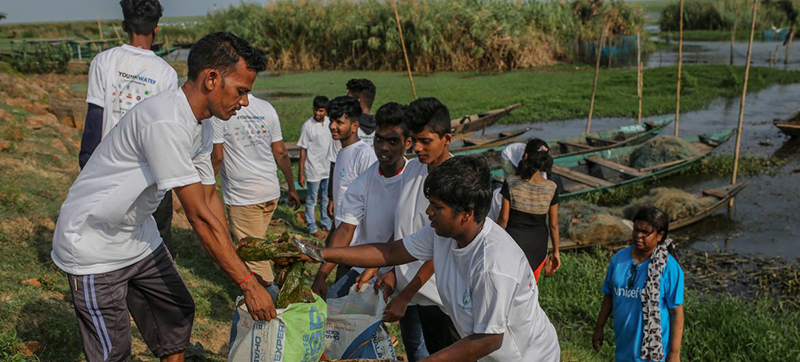 Plastic Pollution
Plastic Pollution New York: As international negotiators committed to hammering out a draft treaty by November on ending plastic pollution, the UN chief stressed in his message for World Environment Day on Monday, the importance of curbing the “catastrophic” consequences of waste plastics.
“Every year, over 400 million tons of plastic is produced worldwide – one third of which is used just once”, said Secretary-General Antonio Guterres.
2,000 truckloads a day
“Every day, the equivalent of over 2,000 garbage trucks full of plastic is dumped into our oceans, rivers, and lakes.”
He noted that microplastics are finding their way into the food we eat, the water we drink, and even the air we breathe.
“Plastic is made from fossil fuels – the more plastic we produce, the more fossil fuel we burn, and the worse we make the climate crisis”, the UN chief said.
We have the solutions
But solutions are at hand: including the legally binding agreement that remains on course, following five days of negotiations involving more than 130 nations last week.
“This is a promising first step, but we need all hands-on deck”, he said, stressing that a new report from the UN Environment Programme (UNEP) shows that plastic pollution can be reduced by a staggering 80 per cent by 2040 – if humankind acts now to reuse, recycle, and pivot away from plastics.
“We must work as one – governments, companies, and consumers alike – to break our addiction to plastics, champion zero waste, and build a truly circular economy.
“Together, let us shape a cleaner, healthier, and more sustainable future for all.”
Unsavoury facts
The statistics for the damage caused by plastics are daunting: more than 400 million tonnes of plastic is produced every year worldwide, half of which is designed to be used only once. Of that, less than 10 per cent is recycled, according to UN figures.
An estimated 19-23 million tonnes end up in lakes, rivers and seas annually - approximately the weight of 2,200 Eiffel Towers.
Plastic on the menu
Microplastics – defined as plastic particles up to 5mm in diameter – find their way into everything we consume and breathe. It is estimated that each person on the planet consumes more than 50,000 plastic particles per year –and many more if inhalation is considered.
Discarded or burnt single-use plastic harms human health and biodiversity and pollutes every ecosystem from mountain tops to the ocean floor.
With available science and solutions to tackle the problem, governments, companies and other stakeholders must scale up and speed actions to solve this crisis, said the UN, underscoring the importance of World Environment Day ”in mobilizing transformative action from every corner of the world.”
Support Our Journalism
We cannot do without you.. your contribution supports unbiased journalism
IBNS is not driven by any ism- not wokeism, not racism, not skewed secularism, not hyper right-wing or left liberal ideals, nor by any hardline religious beliefs or hyper nationalism. We want to serve you good old objective news, as they are. We do not judge or preach. We let people decide for themselves. We only try to present factual and well-sourced news.







